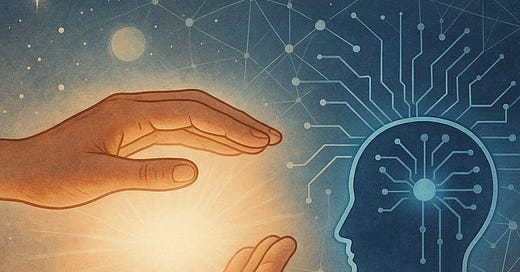🌿 To Be Honest, I Didn’t Believe in Reiki
When I first heard the word Reiki,
I quietly dismissed it as something people wanted to believe in.
It was invisible, immeasurable, and unprovable—
and I was always cautious about anything that asked for belief without evidence.
I had tried many gentle therapies: osteopathy, acupuncture, herbal medicine, homeopathy.
They each had their place and helped in their own ways.
And perhaps, somewhere deep down, I did believe in the power of human hands.
🩺 I Used to Rely on Western Medicine
For a long time, I trusted Western medicine.
Lab values, diagnostic guidelines, standardized procedures—
these were the gold standard.
When symptoms didn’t improve, we tried more tests, adjusted prescriptions, or added new ones.
But one day, I realized something essential:
This approach wasn’t helping.
I was being treated, but I wasn’t being seen.
My body wasn’t a malfunctioning machine. It was asking to be heard.
I began to question the term “alternative medicine.”
Why must ancient practices like Reiki, acupuncture, and herbalism
—each with thousands of years of wisdom—be framed as secondary?
In truth, it is modern medicine that often stands furthest from the human experience.
🫱 And Then, One Hand Changed Everything
I stopped trying new treatments for a while. I just waited.
Then I remembered—a close friend practiced Reiki.
I didn’t expect anything, but one quiet morning, I asked if she’d treat me.
She agreed, warmly.
This friend had a heart like Kannon—the Bodhisattva of Compassion.
And when her hands gently touched my body,
I was stunned.
There was no pressure. No manipulation. No needles. No pills.
Her hands simply rested there.
And yet, my breath deepened.
The tightness in my chest softened.
Somewhere inside, something finally exhaled.
I wasn’t “healed.”
But for the first time in months,
my body seemed to whisper, “It’s okay to be here.”
🤍 Reiki Is Not a Treatment. It’s a Prayer in Silence.
Reiki is not about fixing.
It’s not a technique for changing something.
Reiki is simply being with another.
It can’t be proven.
It can’t be measured.
But it can be felt.
I learned something profound that day:
Reiki does not require belief. It requires openness.
Laying on hands is not “helping” someone. It’s quietly saying,
“I see you. I receive you.”
And this: Reiki is not just about the practitioner’s intention.
Even more important is the receptivity of the person receiving.
If there’s doubt—“It won’t work anyway”—nothing flows.
Reiki is not a one-way current. It’s a meeting, a mutual unfolding.
🧪 The Limits of Science—and the Arrogance of Certainty
I used to believe that science would explain everything.
But today, even science is questioning itself.
What was once considered settled is now open again.
To say, “If it can’t be measured, it doesn’t exist”—
that’s not reason. That’s arrogance.
To understand something like Reiki,
we need a different kind of humility—
one that stands outside the walls of scientific certainty.
Whether the Riemann Hypothesis is solved, or the Poincaré Conjecture was proven—
these are monumental intellectual feats. But they don’t heal my breath.
They don’t hold my pain.
What matters is how we respond to this body, this moment, right now.
And Reiki is that response, quiet and wordless.
🤖 Singularity Cannot Hold a Hand
AI will become better and faster than humans.
It will diagnose, prescribe, and optimize treatment plans.
It will reduce error. It will improve efficiency.
But no matter how smart it gets,
AI cannot simply sit beside someone in silence and hold their hand.
It cannot share a breath.
It cannot offer presence.
It needs electricity.
Reiki doesn’t.
AI is brilliant. But it is a knowledge that goes dark when the power goes out.
Reiki is a wisdom that remains, even in the stillest night.
It lives in human hands—in warmth, in contact, in stillness.
Singularity may be the peak of artificial intelligence.
But it is also the beginning of the test:
Can we still be human in a world that doesn’t need us to be?
🕯️ In Japanese, Healing Is Called Te-Ate
—“Hand Contact”
In Japan, the word for healing is te-ate.
Literally, it means “placing the hand.”
When a child falls, we reach out.
When a loved one lies in bed, we place a hand on their forehead.
When someone is dying, we hold their hand.
There is no science to this.
No protocol.
Only response.
We don’t explain it. We do it.
Because something in us remembers:
This is what humans do.
🔚 In Conclusion
Reiki is not alternative medicine. It is alternative ethics.
Reiki does not offer a cure.
It offers something far rarer:
being-with.
It’s not about fixing pain. It’s about staying with it.
Not about treating disease. But about remembering presence.
Not about doing. But about placing the hand.
As science races into the sky,
perhaps we must return to the ground—
to the body, the breath, the silence,
to what our ancestors always knew:
Sometimes the most powerful medicine is simply not turning away.
Reiki is not a miracle.
It is a quiet revolution.
A form of wisdom we carry in our palms.
🤲



I bow to your writing, a combination of powerful intelligence, perception and humanity. This testimony, for an unnamed reiki practitioner that has treated me as well, is one of the kindest things ever written about their work. I am grateful for your Substack missives and grateful for your support of our reiki master.